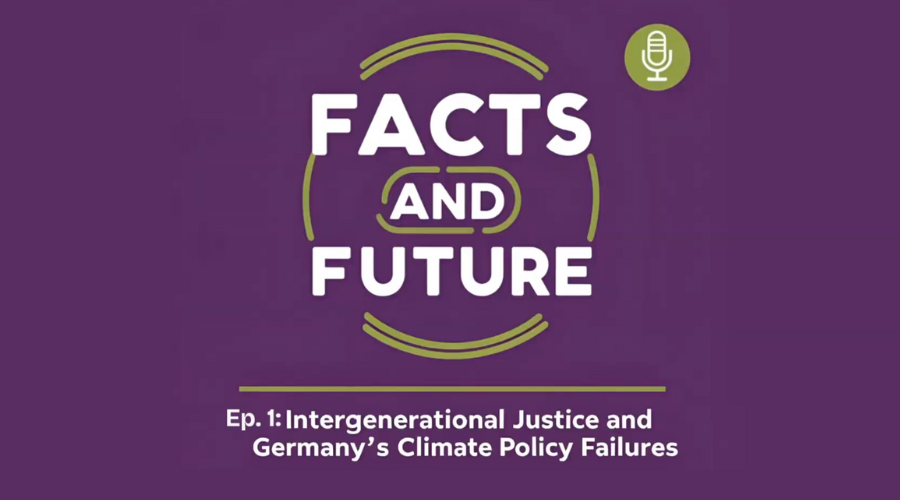
Sufficiency, and not only efficiency, as part of climate mitigation policies to foster the fulfillment of the objectives set by the Paris Agreement
26 August 2025
A Letter to Mark Carney, Prime Minister of Canada
1 September 2025By Rebecca Möbius
The 2025 coalition agreement between The Social Democratic Party (SPD), the Christian Democratic Union (CDU) and the Christian Social Union (CSU), Germany’s incoming government, fails to meet the urgency of the climate crisis (Deutschlandfunk 2025). The delayed coal phase-out until 2038 undermines Germany’s climate targets (CDU, CSU, SPD 2025, 34). Such a timeline makes climate neutrality by 2045, a soon constitutional target (Fröhlich 2025), unlikely and weakens Germany’s contribution to the Paris Agreement goal of limiting global warming to 2°C, ideally to 1.5°C (UNFCCC 2015; Deutschlandfunk 2025). Global warming increases systemic risks, including biodiversity loss, food and water insecurity, and health burdens (IPCC 2023, 12-15). In 2022, coal combustion accounted for 36% of Germany’s energy-related CO₂ emissions (IEA, n.d.). Coal-fired power plants significantly contributed to disease burdens in Germany, especially due to PM2.5 and NO₂ emissions linked to heart diseases and premature deaths (Diegmann et al. 2024, 255). Meanwhile, the center of Europe (and Germany) experienced climate extremes in 2024, including record heat, rainfall and floods (C3S & WMO 2025, 2, 6, 17). Storms and floods in Europe affected around 413,000 people, caused over 335 deaths, and led to at least 18 billion Euro in damage in 2024 (C3S & WMO 2025, 5). Achieving climate neutrality by 2045 requires a coal exit by 2030, rapid renewable expansion, and sector-wide electrification which are key to cost-efficient decarbonization (Luderer et al. 2021, 18-20).
The coalition agreement fails not only ecologically but also in terms of democratic representation and moral responsibility. By postponing key climate measures, it neglects those most affected: future generations, whose rights, as the Federal Constitutional Court ruled in 2021, must not be burdened by delayed emission reductions (SRzG, 2021). According to Campos (2021, 6ff), the all-affected principle requires political inclusion of all individuals impacted by policy decisions, regardless of whether they can participate in the current democratic process. Future generations, although voiceless today, will bear the consequences of environmental degradation. Current political systems often prioritize short-term electoral gains, reinforcing intergenerational injustice (Campos 2021, 2), as reflected in the coalition’s insufficient climate goals (CDU, CSU, SPD 2025, 28-36). Future generations should be represented in Germany’s climate policy to counteract political short-termism and uphold long-term ecological responsibility (González-Ricoy & Gosseries 2016, 4–7; Caney 2016, 135–137) by embedding future concerns across all public institutions (González-Ricoy & Gosseries 2016, 4–5). Campos proposes the ‘long-term’ approach, which integrates children into decision-making processes, as their interests would go hand in hand with the interests of future children (Campos 2021, 2). A practical example is Finland’s Committee for the Future offers a model established in 1993 and backed by constitutional obligation (González-Ricoy & Gosseries 2016, 4).
To uphold democratic legitimacy and climate justice, Germany must integrate future generations into today’s decision-making. The 2025 coalition must act decisively: a coal phase-out by 2030 and rapid expansion of renewables are non-negotiable. Only binding, future-focused policies can fulfill Germany’s constitutional and ethical obligation to achieve climate neutrality.
Bibliography
Campos, A. S. (2021). The British Academy Brian Barry Prize Essay: Representing the Future: The Interests of Future Persons in Representative Democracy. British Journal of Political Science, 51(1), 1–15.
Caney, S. (2016). Policitcal Institutions for the Future. A Fivefold Package. In I. González-Ricoy & A. Gosseries (Eds.), Institutions for future generations (1st ed., pp. 135–155). Oxford: Oxford University Press.
CDU, CSU, & SPD. (2025). Verantwortung für Deutschland: Koalitionsvertrag der 21. Legislaturperiode. https://www.spd.de/fileadmin/Dokumente/Koalitionsvertrag2025_bf.pdf (Accessed: April 15, 2025).
Copernicus Climate Change Service (C3S) & World Meteorological Organization (WMO). (2025). European State of the Climate 2024. https://climate.copernicus.eu/ESOTC/2024, https://doi.org/10.24381/14j9-s541 (Accessed: April 15, 2025).
Deutschlandfunk. (2025, April 12). Klimaschutz – eine Leerstelle im Koalitionsvertrag?https://www.deutschlandfunk.de/bundesregierung-koalitionsvertrag-klimaschutz-100.html (Accessed: April 15, 2025).
Diegmann, V., Neunhäuserer, L., Hoffmann, B., Soppa, V., Ohlwein, S., Hornberg, C., Liebig-Gonglach, M., Mc Call, T., Kuenen, J., Kranenburg, R., Janssen, R., & Coenen, P. (2024). Untersuchung der Krankheitslast in Deutschland durch Kohlekraftwerke (Texte|83/2024). Umweltbundesamt. https://www.umweltbundesamt.de/publikationen/untersuchung-der-krankheitslast-in-deutschland (Accessed: April 16, 2025).
Fröhlich, C. (2025, March 19). Verankerung von Klimaneutralität bis 2045 in Verfassung ändert nicht viel. MDR. https://www.mdr.de/nachrichten/deutschland/politik/klimaneutralitaet-grundgesetz-sondervermoegen-auswirkung-100.html (Accessed: April 15, 2025).
González-Ricoy, I., & Gosseries, A. (2016). Designing institutions for future generations: An Introduction. In I. González-Ricoy & A. Gosseries (Eds.), Institutions for future generations (1st ed., pp. 3–23). Oxford: Oxford University Press.
González-Ricoy, I., & Gosseries, A. (2016). Institutions for future generations / herausgegeben von Iñigo González-Ricoy und Axel Gosseries (1st ed.). Oxford: Oxford University Press.
International Energy Agency (IEA). (n.d.). Emissions – Germany. https://www.iea.org/countries/germany/emissions (Accessed: April 16, 2025).
IPCC. (2023). Summary for Policymakers. In: Climate Change 2023: Synthesis Report. Contribution of Working Groups I, II and III to the Sixth Assessment Report of the Intergovernmental Panel on Climate Change [Core Writing Team, H. Lee & J. Romero (Eds.)], IPCC, Geneva, Switzerland, pp. 1–34. https://doi.org/10.59327/IPCC/AR6-9789291691647.001
Luderer, G., Kost, C., & Sörgel, D. (Eds.). (2021). Deutschland auf dem Weg zur Klimaneutralität 2045 – Szenarien und Pfade im Modellvergleich (Ariadne Report). Potsdam Institute for Climate Impact Research. https://doi.org/10.48485/pik.2021.006
Stiftung für die Rechte zukünftiger Generationen (SRzG). (2021, Mai 4). Das Urteil des Bundesverfassungsgerichts verpflichtet unseren Staat zu Generationengerechtigkeit – was folgt daraus? https://generationengerechtigkeit.info/das-urteil-des-bundesverfassungsgerichts-verpflichtet-unseren-staat-zu-generationengerechtigkeit-was-folgt-daraus/ (Accessed: April 16, 2025).UNFCCC. (2015). The Paris Agreement. United Nations Framework Convention on Climate Change. https://unfccc.int/process-and-meetings/the-paris-agreement (Accessed: April 15, 2025).


